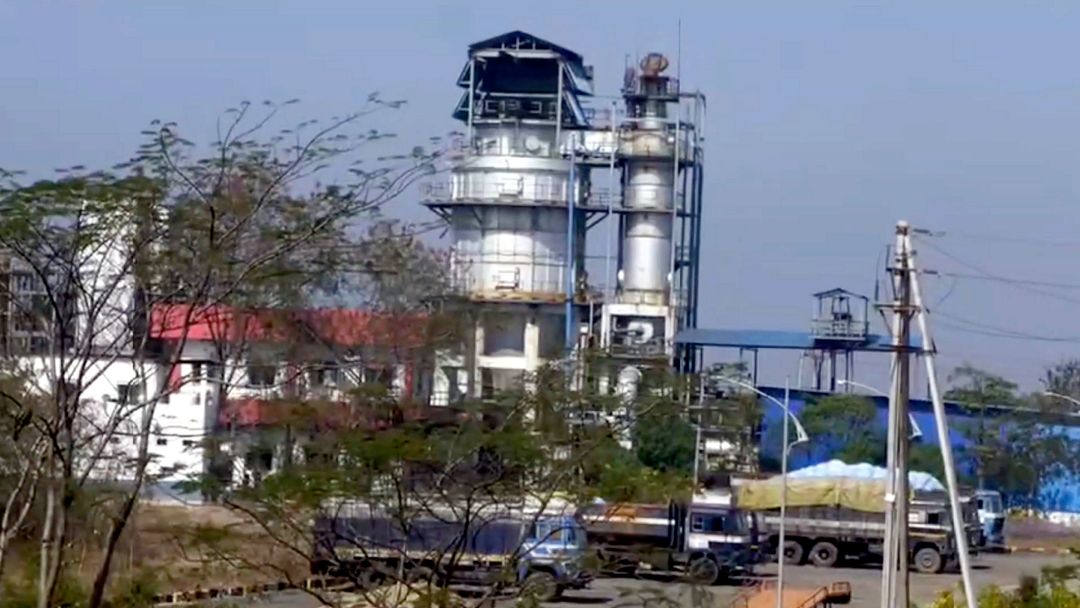Indore, February 28 – The trial incineration of 10 tonnes of hazardous waste linked to the 1984 Bhopal Gas Tragedy commenced on Friday at a designated facility in Pithampur, Dhar district, under the strict monitoring of environmental authorities. According to officials, initial assessments indicate that air quality and other environmental parameters remain within safe limits.
The disposal process, mandated by the Madhya Pradesh High Court, involves the controlled burning of 10 tonnes of waste out of a total of 337 tonnes transported from the defunct Union Carbide factory in Bhopal. Indore division commissioner Deepak Singh, who visited the site, confirmed that the incineration began at 3 PM and is being conducted under the supervision of the Madhya Pradesh Pollution Control Board (MPPCB).
Scientific Monitoring Ensures Safety
Authorities have reassured the public that the waste—comprising soil, reactor residue, Sevin (pesticide) residue, naphthal residue, and semi-processed materials—does not contain methyl isocyanate (MIC), the toxic gas responsible for the 1984 disaster, or any radioactive particles.Explaining the process, MPPCB Regional Officer Srinivas Dwivedi stated that the waste is first mixed in appropriate proportions before being fed into the incinerator, which is heated to 850 degrees Celsius. The burning is being carried out in stages over a 72-hour period, with strict monitoring of air emissions, water discharge, and solid residue. These byproducts will be disposed of as per standard protocols to ensure environmental safety.
Court-Mandated Process Amid Protests
The disposal is taking place in compliance with the Madhya Pradesh High Court’s February 18 directive. If the trial incineration proves successful, additional waste batches will be incinerated on March 4 and March 10, with a final report to be submitted to the court by March 27.The Supreme Court, on February 27, refused to intervene in the High Court’s decision, permitting the disposal to proceed at the private waste management plant in Pithampur.
Despite stringent safety measures, the incineration has sparked protests from environmental activists and local communities. A large police presence has been deployed to maintain order, following demonstrations that erupted after the hazardous waste was transported to Pithampur from Bhopal, approximately 250 kilometers away, on January 2.
Industries in Pithampur Remain Unaffected
Despite public concerns, industrial operations in Pithampur remain unaffected by the trial incineration. Gautam Kothari, President of Pithampur Industrial Organisation, stated that there has been no decline in staff attendance across the 1,250 industrial units in the region, where over 100,000 workers, including migrants, are employed."The situation in the Pithampur industrial area is absolutely normal, and factory operations continue without disruption," Kothari affirmed, expressing satisfaction with the arrangements made for the incineration process.
Legacy of the Bhopal Gas Tragedy
The 1984 Bhopal Gas Tragedy remains the world's worst industrial disaster, claiming at least 5,479 lives and leaving thousands permanently disabled. The disaster was caused by the leakage of highly toxic MIC gas from the Union Carbide plant in Bhopal during the night of December 2-3, 1984.Efforts to safely dispose of the plant’s toxic waste have been ongoing for decades. The current trial incineration marks a significant step toward resolving this long-standing environmental hazard.
Authorities will continue to monitor the trial process closely, and the findings will determine the course of action for the remaining waste disposal in the coming weeks.
